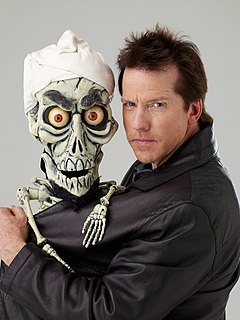A Quote by Benjamin Wittes
It might seem perverse for honestly religious people to group their faiths with those of the sadists and megalomaniacs who run most cults, but a growing number are doing just that.
Related Quotes
Political as well as religious cults can be distinguished from legitimate organizations by their use of doublethink. Though political cults espouse extremist ideologies, not extremist theologies, operationally they are virtually identical to religious cults, and they also go to great lengths to control the vocabularies of their members.
I got tired of doing battle with people thinking I was a little weird because I wasn't in a band making happy, stilted music. The only people who really seem weird to me are people who think they're normal. People who think it's possible to be normal just by doing the same things that most people do. Is there a most people? I don't know. Television makes it seem like there is, but I think that might just be television.
[There is] a strange split in thinking common to those on the religious left, who are quick to denounce the profit motive and commercialism. Yet, they seem to think that the key to happiness is giving people more stuff - by enlisting the coercive power of government. This perverse way of thinking holds that 'social justice' demands that we take money from those who have earned it and give it to those who have less of it. That's not social justice; that's materialism.
It [an ethical problem with in vitro fertilization] depends on whether you're talking ethics from the standpoint of some religious denomination or from just truly religious people. The Jewish or Catholic faiths, for example, have their own rules. But just religious people, who will make very devoted parents, have no problem with in vitro fertilization.
If someone were plucked from the group and given those responsibilities, they might find themselves growing more aloof, just by virtue of that promotion. Suddenly the group culture excludes you. I saw this in my own working life, and I don't think it's a coincidence - I sensed a kind of loneliness in middle managers especially.
Yet rather than calling the earliest religions, which embraced such an open acceptance of all human sexuality, 'fertility cults,' we might consider the religions of today as strange in that they seem to associate shame and even sin with the very process of conceiving new human life. Perhaps centuries from now scholars and historians will be classifying them as 'sterility cults.
































